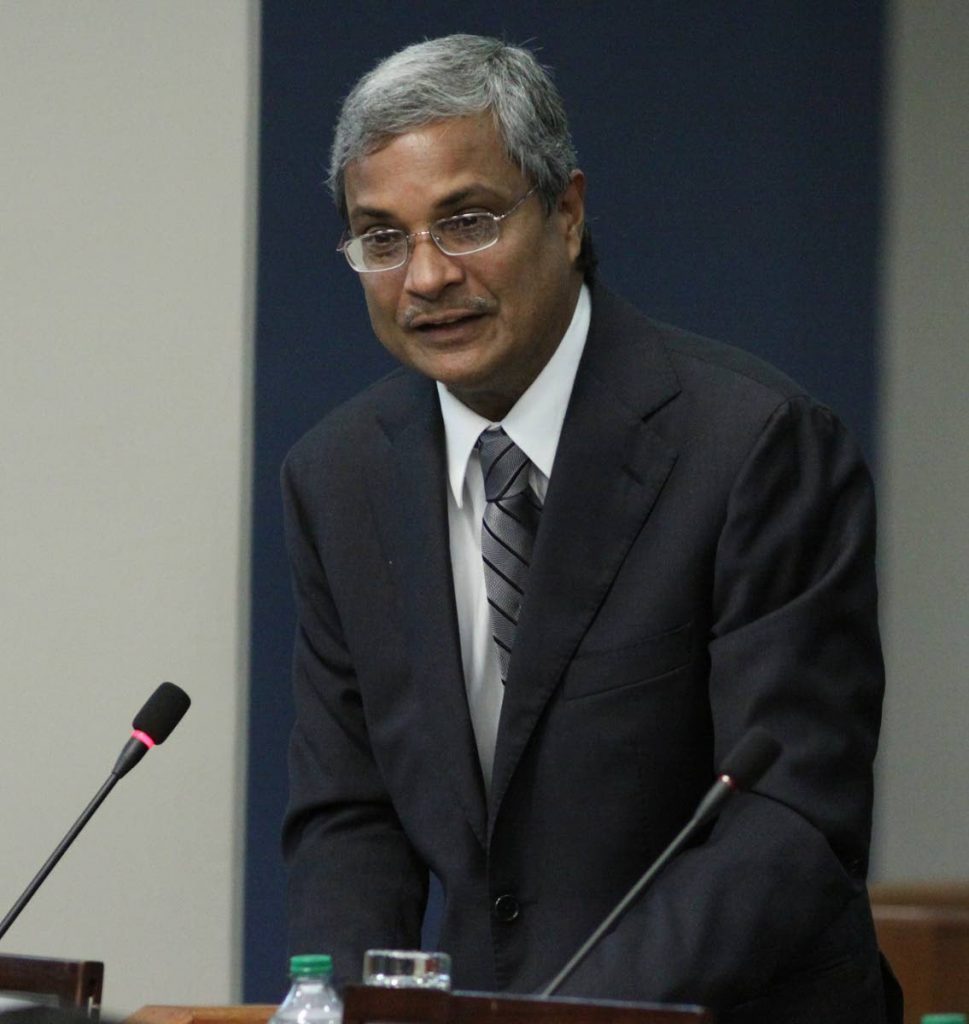Mahabir: Delays not meals, the main woe

WHILE debate raged yesterday over whether or not illegal immigrants were dining on lamb and turkey at the Immigration Detention Centre (IDC), for Independent Senator Dr Dhanayshar Mahabir, said detainees' most pressing problem is delays in their application for asylum or to fight deportation, often caused by a lack of access to legal representation.
“The meals amounted to the least of their problems and could easily be remedied,” Mahabir said. More crucially than meals, he hoped detainees seeking refugee status could better access to legal representation, and that the authorities could act more decisively, one way or the other, on those detainees facing deportation, so as to repatriate them or resettle them in TT.
Mahabir, the former chairman of Parliament's Joint Select Committee (JSC) on Human Rights said often the cost of continued detention exceeds that of deportation.
“The concern I have is we need to differentiate between those who are applying for refugee status and those who were actually to be deported. With respect to those earmarked for deportation, I have a huge concern with the length of time it takes from the deportation order being granted to actual deportation. It can be months or years.
“My reading of the problem is that after a period of six months had elapsed where someone has received his deportation document and is not yet deported, the State must have a policy with respect to what are we to do. Are we going to detain them indefinitely or are we going to find something for them like re-settlement (in TT)?”
He said keeping a detainee in limbo for over six months does not benefit this country, economically, and anyone held for beyond this time should be considered for re-settlement here. “Once you keep someone for longer than six months at the IDC the cost of repatriation would be much less than further stays at the IDC.”
Turning to the issue of asylum-seekers, he said TT should try to adhere to the United Nations (UN) Convention on Refugees.
“There were situations where people who claimed refugee status could not get access to legal representation. This is in contravention of international best practice. I know we have not ratified the UN Treaty but I feel we should still try as hard as practicable to adhere to the UN convention.” He said if TT nationals ever become refugees he hoped they would be well treated under the convention. “We are a signatory to the convention, and we need to subscribe to that.” He reiterated the need for detainees to have legal representation.
“But commendations to the Government in doing what it can in documenting the majority of the Venezuelans – that’s a very good first step – but we must follow the UN convention especially on children.”
Mahabir, who had visited the IDC facility, gave a middle of the road reply when asked if detainees were fed lamb and turkey as the IDC claimed in a recent JSC report or whether detainees were right to damn their meals were "insufficient and poorly prepared and did not reflect a balanced diet."
He reckoned the IDC menu published in the JSC was what in theory ought to be fed to detainees but did not reflect what they actually received. Yet Mahabir also said he had not received any complaints about meals when he visited, except for a detainee showing him a carton of expired juice that was alleged the norm to be served. Mahabir said that as an economist he thought the cost of meals was "a bit high" and that an alternative supplier should be sought.
Overall however, Mahabir opined that the quality of meals was the least of the problems facing detainees and could be easily fixed.
Mahabir used the debate on detention to make a plug for more humane treatment of TT inmates at Remand Yard at Arouca. While often 10 men share a cell designed for four, he urged TT to get a World Bank loan to build a new facility for them. Emancipation Support Committee (ESC) chairman Khafra Kambon said he did not know of the current meal situation at the IDC which he had not visited for a long time. "These are not things to get into on a speculative basis." He said the quality of meals used to be "very bad" but he could not now speculate on it, even as he said sometimes people act to correct a situation, even though it may then slip back.


Comments
"Mahabir: Delays not meals, the main woe"